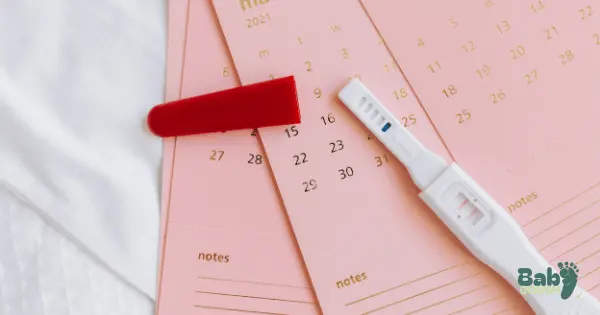
A pregnancy scare can feel like a rollercoaster of emotions—fear, uncertainty, or even excitement—depending on your situation. It’s a moment that forces you to pause and think about your life, choices, and what comes next. While many people experience pregnancy scares, few talk openly about them, leaving you feeling like you’re navigating uncharted territory alone. This guide is here to clarify, ease your worries, and help you understand exactly what a pregnancy scare is and how to handle it.
Table of Contents
What Is a Pregnancy Scare?
At its core, a pregnancy scare is the fear or belief that you might be pregnant when you weren’t planning for it. It can stem from a delayed period, a contraception mishap, or even symptoms that resemble pregnancy. These moments often come with a wave of anxiety, leaving you questioning what to do next.
Pregnancy scares are common, and they happen to people of all ages and experiences. Understanding what’s happening in your body and why you feel this way can make the situation much less daunting.
Signs That Might Cause a Pregnancy Scare

When you’re uncertain, it’s easy to overanalyze every symptom or sign your body gives you. Some of the most common signs that trigger a pregnancy scare include:
- Missed or Late Periods: A delayed period is one of the biggest causes of alarm, but factors like stress, diet, or hormonal changes can also affect your cycle.
- Nausea and Fatigue: These symptoms might feel like classic pregnancy indicators, but they could also be linked to other issues like stress or illness.
- Breast Tenderness: Hormonal changes from your menstrual cycle or other factors can mimic pregnancy symptoms.
- Unprotected Intercourse or Contraceptive Failure: A missed pill, a broken condom, or forgetting to use protection altogether can lead to a heightened fear of pregnancy.
How to Handle a Pregnancy Scare

If you think you might be pregnant, staying calm is the first step. Panic often leads to rushed decisions or unnecessary stress. Here’s a way you can handle the situation:
1. Take a Pregnancy Test
A reliable way to confirm or rule out pregnancy is by taking a test. Choose a reputable brand, follow the instructions carefully, and take the test first thing in the morning for the most accurate results.
2. Reflect on Your Situation
Take a moment to assess what caused the scare. Was it a missed period? A forgotten pill? Understanding the root of your fear can provide valuable insight moving forward.
3. Seek Emotional Support
You don’t have to face this alone. Share your feelings with someone you trust—whether it’s a friend, family member, or partner. Talking it out can ease the emotional weight and give you a clearer perspective.
4. Consult a Healthcare Professional
If the pregnancy test result is unclear or if you have additional questions, schedule a visit with your healthcare provider. They can offer guidance, reassurance, and any follow-up tests you may need.
What Causes Pregnancy Scares to Happen?
1. Irregular Menstrual Cycles
Your menstrual cycle isn’t always predictable. Stress, changes in routine, or even travel can disrupt your period, leading to false alarms.
2. Birth Control Misuse
Even with contraception, pregnancy scares can occur if you forget a pill, miss an injection, or don’t use condoms consistently.
3. Misinterpreting Symptoms
Symptoms like bloating, fatigue, or mood swings can feel like signs of pregnancy but are often related to your menstrual cycle or stress.
Understanding these causes can help you better evaluate your situation and avoid unnecessary panic.
Preventing Future Pregnancy Scares

While you can’t eliminate all uncertainty, you can take steps to reduce the chances of another pregnancy scare:
1. Use Reliable Birth Control
Choose a contraceptive method that fits your lifestyle. Whether it’s birth control pills, an IUD, or condoms, consistency is key.
2. Track Your Cycle
Utilize apps or a calendar to track your menstrual cycle. Knowing when you’re ovulating can help you make more informed decisions.
3. Have a Backup Plan
Keep emergency contraception on hand for unexpected situations. It’s better to have it and not require it than to be unprepared.
FAQ:
What is a pregnancy scare?
A pregnancy scare is a fear or belief that you might be pregnant, often due to symptoms, missed periods, or contraceptive mishaps.
How common are pregnancy scares?
Pregnancy scares happen frequently, especially among those who are sexually active.
Can stress cause pregnancy-like symptoms?
Yes, stress can disrupt your menstrual cycle and cause symptoms like nausea, fatigue, or mood swings, which might mimic pregnancy signs.
What should I do if my test is negative but my period is still late?
If your test is negative and your period hasn’t arrived after a week, consult a healthcare professional to rule out other factors like hormonal imbalances.
How can I avoid pregnancy scares in the future?
Use reliable contraception, track your cycle, and educate yourself about emergency contraception options.
Conclusion
A pregnancy scare is a situation many people face, and while it can feel overwhelming, understanding the causes and knowing what steps to take can make it manageable. Whether you’re experiencing one now or want to prevent future scares, knowledge, and preparation are your best tools.
If you’ve ever experienced a pregnancy scare or have tips to share, join the conversation in the comments below. Remember, you’re not alone, and resources are available to help you navigate these moments with confidence.

